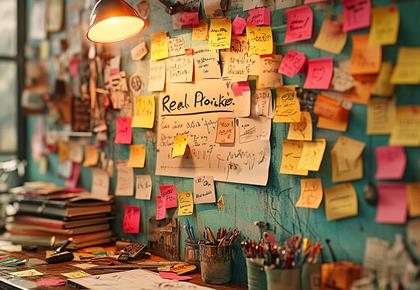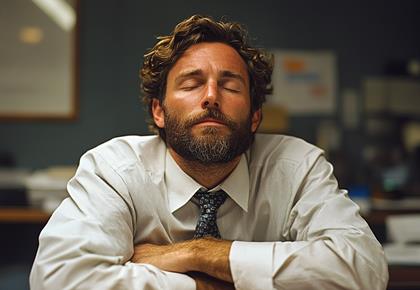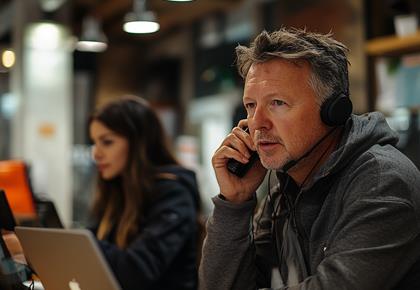Key Takeaways
- The 10,000-hour rule, popularized by Malcolm Gladwell, suggests extensive practice is key to mastery in any field.
- Success stories like Bill Gates, Albert Einstein, and The Beatles involve more than just practice.
- Factors like natural talent, quality of practice, and resource access play crucial roles.
- Studies show a wide range in the hours of practice needed to achieve expertise.
What is the 10.000-hour rule?
Sidenote: I have read and enjoyed Malcolm Gladwell's book "Outliers"The 10,000-hour rule stands out as a guiding principle for entrepreneurs and their teams. For those dedicated to mastering specific areas like coding, product creation, marketing, or sales, this rule offers a clear path to becoming experts.
It's not just about spending time on their skills, but about deliberate and focused effort. This dedication doesn't just mean they are practicing; it significantly increases their chances of turning their startup from a small beginning into a major success.
Can 10,000 hours of practice alone guarantee success?
Malcolm Gladwell's famous concept didn't originate from his own research but was instead drawn from the work of various psychologists, notably Anders Ericsson. Ericsson, a prominent Swedish psychologist, extensively studied how expertise develops and the significance of practice in skill acquisition.His findings suggest that top performers in various fields typically engage in significantly more hours of focused and deliberate practice compared to their less accomplished peers. This idea is both uplifting and inclusive, implying that, in theory, anyone can achieve mastery if they dedicate enough time and effort.
Delving deeper into Ericsson's research sheds light on the intricate relationship between practice and skill development. He observed that not just any practice, but rather 'deliberate practice', is essential for reaching high levels of expertise. This involves activities specifically designed to improve performance, often demanding and not inherently enjoyable.
Ericsson's findings challenge the notion of innate talent playing the sole role in achieving excellence. Instead, they emphasize the transformative power of sustained, mindful practice, suggesting that persistent effort can lead to remarkable levels of skill and accomplishment in various domains.
The message is encouraging and democratic as it supposes that everyone, if they want, they can.
Famous people, who have been credited the 10.000-hour rule for their success?
Bill Gates: It's been reported that Bill Gates practised programming for over 10,000 hours before co-founding Microsoft and becoming one of the world's richest men.Bill Gates' success can be attributed to several other factors, including his unique and valuable idea for Microsoft, his strong leadership and business acumen, his ability to attract and retain talented people, his ability to adapt to changing market conditions, his financial planning and management skills, and his network and partnerships.
Albert Einstein: It is said he spent over 10,000 hours studying and thinking about physics and mathematics before making his major contributions to the field.
Albert Einstein's success can be attributed to several other factors, including his exceptional cognitive abilities, his innovative thinking and problem-solving skills, his ability to approach problems from unique and unconventional perspectives, his curiosity and thirst for knowledge, and his broad education and understanding of different fields.
The Beatles are said to have performed live for over 10,000 hours before they became famous and changed the course of popular music.
The Beatles' success can be attributed to several other factors, including their unique and innovative musical style, their ability to write catchy and memorable songs, their charismatic stage presence, their ability to adapt to changing musical trends and evolve their sound, their effective marketing and branding strategies, and the strong network and partnerships of their manager Allan Williams.
"The Dan Plan" Experiment
"The Dan Plan" was a real-life experiment by Dan McLaughlin, who wasn't a professional golfer. He wanted to see if practicing golf for 10,000 hours would turn him into a pro. He dedicated years to this challenge, focusing on improving his golf skills through intense and purposeful practice. Despite his hard work, McLaughlin never reached professional level.This experiment highlighted an important lesson: while putting in the hours is crucial, it's not the only thing that matters. Natural talent, the quality of the practice, and having the right resources are also key parts of becoming an expert in any field.
In 2017, McLaughlin decided to end "The Dan Plan". His journey wasn't just about golf; it was a test of human potential and the limits of perseverance. He made significant improvements in his game, but eventually, he faced physical limitations and struggled with depression. This led him to acknowledge the end of his experiment.
His experience is a powerful reminder that while determination and practice are essential, they must be balanced with self-care and an understanding of one's own limits.
Is the 10.000-hour rule statistically wrong?
The 10,000-hour rule isn't a strict rule but more of an average estimate. Researchers Guillermo Campitelli and Fernand Gobet looked into how much practice chess players needed to become really good. They found that, generally, the more you practice chess, the better you get.Interestingly, they discovered that to reach a master level in chess (measured as 2,200 points on the Elo scale), players needed about 11,000 hours of practice on average. This is a bit more than the famous 10,000-hour rule suggests.
But there's a twist: the actual number of hours each player practiced varied a lot, from 3,000 to a whopping 23,000 hours. That's a huge difference, equivalent to practicing for an extra 20 years! Plus, the study found that even some players who practiced for over 25,000 hours didn't make it to the master level.
While practice is important, the 10,000-hour rule isn't a guarantee of success and there's a lot more to becoming an expert than just clocking hours.
Ask Yourself the Following Question
Do you think that training for 10,000 hours of rope walking would be sufficient to walk between the Twin Towers, at a height of 400 meters above the ground, like the French street artist Philippe Petit did on August 7, 1974?Conclusion
The 10,000-hour rule, while a helpful guideline, isn't a one-size-fits-all formula for success. The stories of Bill Gates, Albert Einstein, The Beatles, and Dan McLaughlin show that becoming a top player in any field is about more than just clocking hours. Sure, practice is super important, but it's not the only thing.You also need natural talent, the right kind of practice, and good resources. The rule is more like a rough average – some people might need less time, while others might need a lot more. And even then, success isn't guaranteed.
It's about putting in the effort, yes, but also about knowing yourself, using your strengths, and sometimes, a bit of luck. So, while practicing a lot is great, remember to look at the bigger picture and all the other things that can help you get where you want to be.
Success requires a combination of both hard work and natural talent. There is no specific magic number that guarantees success alone!

Are you brainstorming your way to a great startup idea? You might be doing it all wrong. Here’s what most founders miss

Starting a business to escape burnout? You might be trading one grind for another. Here’s the truth nobody tells you about being your own boss.

Paul Graham’s golden rule for startups: Do things that don’t scale. 🤔 Confused? Don’t be—here’s why your unscalable efforts today lay the foundation for massive growth tomorrow.

Myth busted: You don’t need a mountain of cash to start a business! Learn the truth behind 10 common myths about entrepreneurship

STOP blaming inflation! Discover the types of inflation, why some are necessary, and what really drives prices up.

Ever wonder if having a big-name founder means a startup is bound to succeed?

